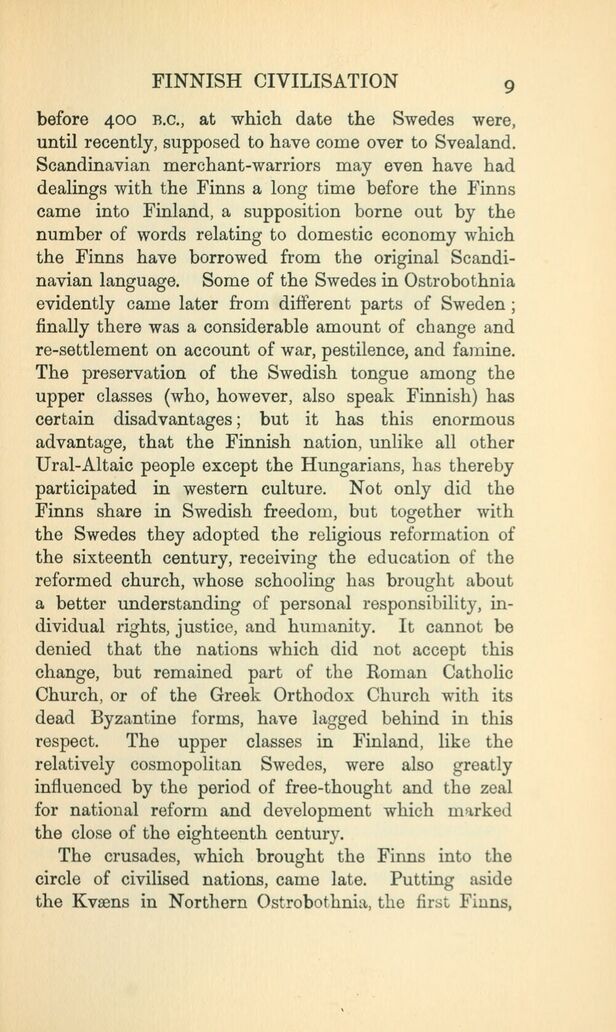
Full resolution (JPEG) - On this page / på denna sida - I. Peculiarities of Finnish Civilisation

<< prev. page << föreg. sida << >> nästa sida >> next page >>
Below is the raw OCR text
from the above scanned image.
Do you see an error? Proofread the page now!
Här nedan syns maskintolkade texten från faksimilbilden ovan.
Ser du något fel? Korrekturläs sidan nu!
This page has been proofread at least once.
(diff)
(history)
Denna sida har korrekturlästs minst en gång.
(skillnad)
(historik)
before 400 B.C., at which date the Swedes were,
until recently, supposed to have come over to Svealand.
Scandinavian merchant-warriors may even have had
dealings with the Finns a long time before the Finns
came into Finland, a supposition borne out by the
number of words relating to domestic economy which
the Finns have borrowed from the original Scandinavian
language. Some of the Swedes in Ostrobothnia
evidently came later from different parts of Sweden;
finally there was a considerable amount of change and
re-settlement on account of war, pestilence, and famine.
The preservation of the Swedish tongue among the
upper classes (who, however, also speak Finnish) has
certain disadvantages; but it has this enormous
advantage, that the Finnish nation, unlike all other
Ural-Altaic people except the Hungarians, has thereby
participated in western culture. Not only did the
Finns share in Swedish freedom, but together with
the Swedes they adopted the religious reformation of
the sixteenth century, receiving the education of the
reformed church, whose schooling has brought about
a better understanding of personal responsibility,
individual rights, justice, and humanity. It cannot be
denied that the nations which did not accept this
change, but remained part of the Roman Catholic
Church, or of the Greek Orthodox Church with its
dead Byzantine forms, have lagged behind in this
respect. The upper classes in Finland, like the
relatively cosmopolitan Swedes, were also greatly
influenced by the period of free-thought and the zeal
for national reform and development which marked
the close of the eighteenth century.
The crusades, which brought the Finns into the
circle of civilised nations, came late. Putting aside
the Kvæns in Northern Ostrobothnia, the first Finns,
<< prev. page << föreg. sida << >> nästa sida >> next page >>